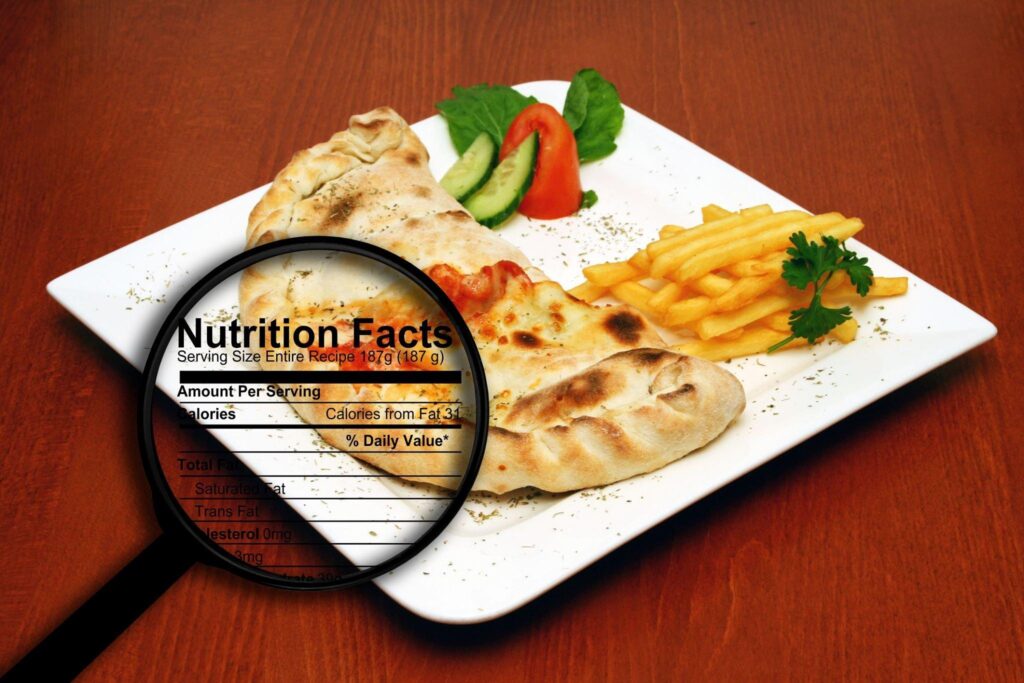Introduction
When hunger strikes and time is of the essence, many people turn to convenient snacks like pizza rolls. These bite-sized treats are undeniably delicious and easy to prepare, but are pizza rolls healthy? In this article, we will analyze the nutritional value of pizza rolls and whether they align with a health-conscious mindset.
The Popularity Of Pizza Rolls And Their Appeal As A Convenient Snack.
Pizza rolls have gained immense popularity over the years due to their convenience and versatility. Made with a combination of dough, cheese, and various fillings, these bite-sized snacks offer a burst of flavor in every bite. They can be quickly heated in the oven or microwave, making them an attractive option for those looking for a quick and easy snack or appetizer.
Exploring The Health-conscious Mindset When It Comes To Food Choices.
In recent times, there has been a growing emphasis on making healthier food choices. Health-conscious individuals often prioritize the consumption of nutrient-dense foods that provide essential vitamins, minerals, and other beneficial compounds. They tend to look for snacks that offer a good balance of macronutrients and are low in additives, preservatives, and unhealthy fats.
When evaluating the nutritional value of pizza rolls, it is essential to consider factors such as calorie content, macronutrient composition, and the presence of additives or artificial ingredients. While pizza rolls can provide a quick and satisfying snack option, they are generally high in calories, sodium, and unhealthy fats. They often lack substantial amounts of essential nutrients like fiber, vitamins, and minerals.
Is it possible to enjoy pizza rolls while maintaining a health-conscious approach? Yes, moderation is key. Don’t eliminate them from your diet, but instead, enjoy them as an occasional treat rather than a regular snack. Pairing pizza rolls with a side of fresh vegetables or opting for healthier alternatives, such as homemade pizza rolls using whole wheat dough and leaner toppings, can also make them a slightly healthier option.
In conclusion, pizza rolls are a tasty and convenient snack but may not align with a health-conscious mindset due to their high calorie and unhealthy fat content. Enjoy them in moderation, and consider healthier alternatives to satisfy your cravings while still maintaining a balanced diet.
Nutritional Analysis Of Pizza Rolls
Understanding The Ingredients And Their Impact On Nutritional Value.
Before popping those pizza rolls into the oven, let’s take a closer look at their nutritional value. Pizza rolls typically consist of a dough shell filled with tomato sauce, cheese, and various toppings. While they may be tasty, they are not the healthiest option on the menu.
The dough shell is made from refined grains, which lack essential nutrients and fiber. The tomato sauce can be high in sugar and sodium, while the cheese provides saturated fat and cholesterol. The toppings can vary, but they often include processed meats like pepperoni or sausage, which add even more fat and sodium to the mix.
Examining The Calorie Content Of Pizza Rolls.
Pizza rolls can be quite calorically dense. On average, one serving of six pizza rolls contains around 220-250 calories. Keep in mind that it’s easy to consume more than one serving, as they are bite-sized and addictive. If you’re watching your calorie intake, it’s essential to be mindful of portion sizes and the number of rolls you consume.
Analyzing The Fat, Sodium, And Carbohydrate Content.
When it comes to fat and sodium, pizza rolls can be a concern. One serving often contains around 10-12 grams of fat, with some varieties reaching as high as 20 grams. Additionally, the sodium content can range from 400-600 milligrams per serving, which is around 26-40% of the recommended daily limit. As for carbohydrates, a serving usually provides 25-30 grams, mostly from the dough shell.
While pizza rolls can be enjoyed occasionally as a treat, they are not recommended as a regular part of a balanced and healthy diet. If you’re looking for a healthier alternative, consider making your pizza using whole grain crust, fresh ingredients, and lean protein toppings.
Remember, moderation is key. Indulging in a few pizza rolls on occasion won’t derail your health goals, but consuming them in excess may lead to weight gain and health issues associated with a high-fat and high-sodium diet.
Pizza Rolls And Protein
Pizza Rolls are a popular snack enjoyed by many, but for health-conscious individuals, the question of their nutritional value often arises. In this article, we will explore the protein content of Pizza Rolls and its importance in a balanced diet.
The Protein Content In Pizza Rolls And Its Importance In A Balanced Diet.
Protein is an essential macronutrient that plays a vital role in maintaining and repairing tissues, supporting immune function, and promoting satiety. Each serving of Pizza Rolls contains a moderate amount of protein, typically around 5 grams. While this may not seem substantial, it can still contribute to your daily protein needs, especially when paired with other protein-rich foods.
To put it into perspective, the recommended daily intake of protein for an average adult is around 46-56 grams. Incorporating Pizza Rolls into your diet can be a way to add a tasty snack while still meeting your protein requirements. However, it’s essential to balance it with other nutrient-dense foods to ensure a well-rounded diet.
Comparing Protein Levels In Pizza Rolls With Other Snack Options.
When it comes to snacking, it’s crucial to consider the nutritional value of different options. Pizza Rolls can offer a decent protein boost compared to many other popular snacks. For instance, a serving of potato chips typically contains around 2 grams of protein, while a serving of cheese crackers provides around 3 grams. In comparison, Pizza Rolls have a higher protein content, making them a better choice for those seeking a protein-rich snack.
Although Pizza Rolls can contribute to your protein intake, it’s important to remember that they are also high in calories, saturated fat, and sodium. In moderation, Pizza Rolls can be enjoyed as part of a balanced diet. Still, it’s essential to pair them with fruits, vegetables, and lean protein sources to ensure overall nutritional balance.
In conclusion, Pizza Rolls can serve as a source of protein in a balanced diet. However, it’s crucial to consider their overall nutritional value and consume them in moderation alongside healthier options. By making thoughtful choices and focusing on variety and moderation, you can enjoy Pizza Rolls while still prioritizing your health and well-being.
Vitamins And Minerals In Pizza Rolls
Exploring The Presence Of Essential Vitamins And Minerals In Pizza Rolls.
Pizza rolls are a popular snack option loved by many. But are they healthy? Let’s dive into the nutritional value of pizza rolls and analyze the presence of vitamins and minerals.
When it comes to vitamins, pizza rolls can provide small amounts of certain nutrients. For example, they may contain vitamin A, which is important for maintaining healthy vision and immune function. Additionally, pizza rolls may contain small amounts of B vitamins like thiamine, riboflavin, and niacin, which play key roles in energy production and maintaining a healthy metabolism.
In terms of minerals, pizza rolls may contain traces of iron, calcium, and potassium. Iron is essential for carrying oxygen throughout the body, while calcium contributes to strong bones and teeth. Potassium is important for maintaining proper heart and muscle function.
Discussing The Benefits And Drawbacks Of These Nutrients In The Context Of Pizza Rolls.
While it’s true that pizza rolls can provide some essential vitamins and minerals, it’s important to consider the overall nutritional profile of these snacks. Pizza rolls are often high in calories, unhealthy fats, and sodium, which can have negative effects on health when consumed in excess.
The small amounts of vitamins and minerals in pizza rolls may not outweigh the potential negative impacts of their higher calorie and sodium content. It’s important to consume a well-balanced diet that includes a variety of nutrient-packed foods to meet your body’s needs.
If you enjoy pizza rolls as an occasional treat, there’s no harm in indulging. However, if you’re looking for a healthier snack option, consider alternatives such as homemade vegetable-filled rolls or whole-grain options that offer more nutritional value.
In conclusion, while pizza rolls may contain small amounts of essential vitamins and minerals, their overall nutritional value is outweighed by their high calorie, fat, and sodium content. It’s best to enjoy these snacks in moderation and prioritize a well-balanced diet that includes nutrient-dense foods.
Balancing Health And Convenience
When it comes to satisfying comfort food cravings, pizza rolls often top the list. However, health-conscious individuals might wonder if indulging in these tasty treats aligns with their dietary goals. Is it possible to enjoy pizza rolls while still maintaining a balanced and healthy lifestyle? Let’s take a closer look at the nutritional value of pizza rolls and explore some strategies for incorporating them into a health-conscious diet.
Strategies For Incorporating Pizza Rolls Into A Balanced And Health-conscious Diet.
- Portion Control: Moderation is key! Enjoying a serving of pizza rolls as an occasional treat can be a part of a balanced diet. Be mindful of portion sizes to avoid overindulging.
- Pair with Nutritious Sides: Enhance the nutritional value of your meal by incorporating a variety of fruits, vegetables, or a side salad alongside your pizza rolls. This will provide additional vitamins, minerals, and fiber.
- Opt for Whole Grain Crust: If you’re making or purchasing pizza rolls, look for options with whole-grain crust. Whole grains offer more fiber, which can help promote feelings of fullness and improve digestion.
Tips For Making Pizza Rolls Healthier Through Homemade Alternatives Or Ingredient Swaps:
- Make Your Own: Prepare homemade pizza rolls using whole wheat tortillas or dough, lean protein toppings, and a moderate amount of cheese. This allows you to control the ingredients and reduce the sodium and saturated fat content.
- Choose Leaner Fillings: Instead of traditional high-fat toppings like pepperoni or sausage, opt for leaner protein options such as grilled chicken, turkey or plant-based alternatives like tofu or mushrooms.
- Veggie Power: Load up your pizza rolls with an assortment of vegetables like spinach, bell peppers, onions, or tomatoes. These additions increase the nutrient density of your meal and add vibrant flavors.
Remember, while pizza rolls may not be the healthiest food choice, enjoying them occasionally as part of a well-rounded diet can be a satisfying and guilt-free indulgence. By practicing portion control, balancing your meal with nutritious sides, and making homemade alternatives with healthier ingredients, you can find the perfect harmony between health and convenience.
Health Risks Of Pizza Rolls
For health-conscious individuals, one of the burning questions is: Are pizza rolls healthy? Let’s dig into the nutritional value of these popular snacks to find out.
Examining Potential Health Risks Associated With Regular Consumption Of Pizza Rolls.
While pizza rolls may be delicious and convenient, they come with a few potential health risks. One of the main concerns is their high-calorie content. These bite-sized treats are often high in calories, with one serving of pepperoni pizza rolls containing around 220 calories. Consuming several servings in one sitting can quickly lead to excessive calorie intake, which may contribute to weight gain and obesity.
Another health risk associated with pizza rolls is their high sodium content. Excess sodium intake is linked to elevated blood pressure and an increased risk of heart disease. One serving of pizza rolls can contain up to 440 milligrams of sodium, which is a significant portion of the recommended daily intake.
The Impact Of High Sodium And Fat Content On Cardiovascular Health.
The combination of high sodium and fat content in pizza rolls can also have negative effects on cardiovascular health. Consuming foods high in sodium can cause water retention and increase blood pressure. Additionally, the fat content in pizza rolls, particularly saturated fats, can contribute to the development of plaque in arteries, increasing the risk of heart disease.
It’s worth noting that pizza rolls can still be enjoyed occasionally as a treat, but it’s essential to consume them in moderation and consider healthier alternatives. Opting for homemade pizza rolls using whole wheat dough, lean meats, and vegetables can be a healthier choice. Additionally, pairing pizza rolls with a side of fresh salad or vegetables can help balance the meal and increase nutrient intake.
In conclusion, while pizza rolls may satisfy your cravings for a quick and easy snack, they come with potential health risks due to their high calorie, sodium, and fat content. It’s important to be mindful of portion sizes and consider healthier alternatives to maintain a balanced and nutritious diet.
Conclusion
In conclusion, pizza rolls may not be the healthiest snack option, but they can still be enjoyed in moderation as a treat. It is important to be mindful of their high sodium, calorie, and saturated fat content. If you are health-conscious and looking for a more nutritious alternative, there are several options to consider.
Summarizing The Nutritional Analysis Of Pizza Rolls
Pizza rolls are a popular frozen snack that can be quick and convenient to prepare. However, they are typically high in sodium, calories, and saturated fat. The nutritional composition of pizza rolls can vary depending on the brand and flavor, but on average, a serving of pizza rolls (6 pieces) contains approximately:
- Calories: 220-250
- Sodium: 430-470 mg
- Total Fat: 9-11g
- Saturated Fat: 3-4.5g
While pizza rolls may provide some protein and carbohydrates, they are not a significant source of vitamins, minerals, or fiber. It is important to keep in mind that these values are general estimates and can vary between different brands and flavors.
The Decision-making Process In Choosing Health-conscious Snack Options
When considering health-conscious snack options, it is essential to focus on nutrient-dense foods that provide a good balance of macronutrients and micronutrients. Here are some tips for making healthier snack choices:
- Opt for whole, minimally processed foods such as fruits, vegetables, nuts, and seeds.
- Look for snacks that offer a good source of protein, fiber, and healthy fats to help keep you satisfied.
- Read food labels and pay attention to the nutritional information, including serving size, calories, sodium, and fat content.
- Consider homemade alternatives to packaged snacks, like homemade vegetable sticks with a yogurt dip or roasted chickpeas.
- Practice portion control and moderation, even with healthier snack options.
By making mindful choices and being aware of the nutritional composition of different snacks, you can enjoy a balanced and health-conscious approach to snacking.
FAQ: Are Pizza Rolls Healthy? – Health Conscious? Analyzing the Nutritional Value of Pizza Rolls
Q: Are pizza rolls a healthy food option?
A: Pizza rolls, while tasty, may not be the healthiest choice if you are looking for a nutritious meal. Following is an analysis of the nutritional value of pizza rolls based on the available online data.
Q: What are the nutritional facts of pizza rolls?
A: A typical serving of pizza rolls contains approximately 325 calories. However, the specific nutritional content may vary based on the brand and variation of pizza rolls you consume.
Q: What vitamins are present in pizza rolls?
A: The specific vitamin content of pizza rolls can vary depending on the recipe and brand. Unfortunately, the online data does not provide detailed information on the vitamins present in pizza rolls.
Q: What minerals can be found in pizza rolls?
A: Similar to the vitamins, the precise mineral profile of pizza rolls is not available in the online data we referred to.
Q: Are there any amino acids in pizza rolls?
A: While the online data does mention the presence of amino acids in pizza rolls, it does not provide specific details or quantities.
Q: What is the carbohydrate quality score of pizza rolls?
A: The carbohydrate quality score of pizza rolls, based on the online data, is reported as 2.0 out of 100. This score suggests that pizza rolls are a relatively low-quality carbohydrate food.
Q: What is the macronutrient profile of pizza rolls?
A: The macronutrient profile of pizza rolls indicates the breakdown of carbs, protein, fat, and fiber. However, without specific data, it isn’t easy to provide an accurate analysis.
Q: Are pizza rolls recommended for a health-conscious diet?
A: Due to their high-calorie content and limited nutritional value, pizza rolls may not be the best choice for individuals who are health-conscious. It is essential to consider the overall nutritional profile and make well-informed choices.
Q: Can I track the nutritional content of pizza rolls?
A: If you wish to track the nutritional content of pizza rolls accurately, it is recommended to upload the data from the specific brand or recipe into a food tracking app or use a reliable nutritional calculator, such as Cronometer.

Looking for delicious pizza and authentic Italian cuisine? Look no further than Claudia R. Diaz at Joe’s NY Pizza in Tonawanda! Our menu features a wide variety of classic dishes and innovative creations, all made with the freshest ingredients and prepared with the utmost care. Whether you’re in the mood for a traditional Margherita pizza or something a little more adventurous, like our Buffalo chicken pizza or shrimp scampi pasta, Claudia R. Diaz has something to satisfy every craving. So why wait? Visit us today and experience the best Italian food in Tonawanda! #ClaudiaRDiaz #JoesNYPizzaTonawanda #ItalianFood #PizzaLovers #FoodiesUnite



